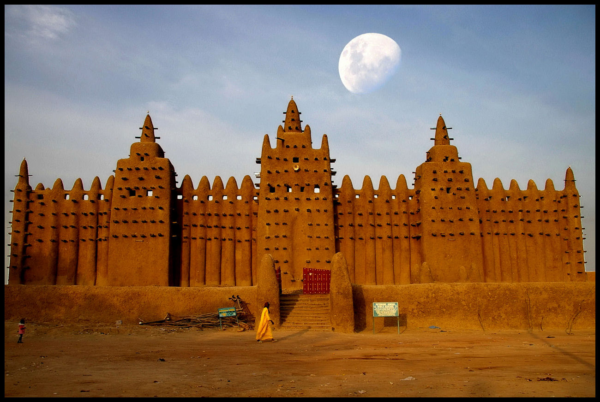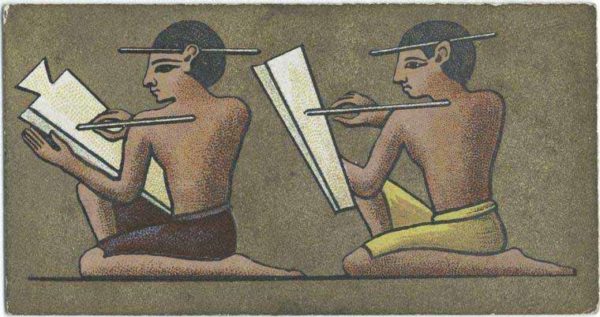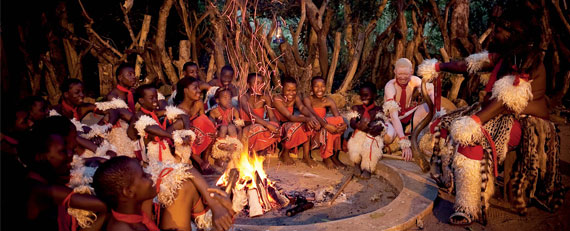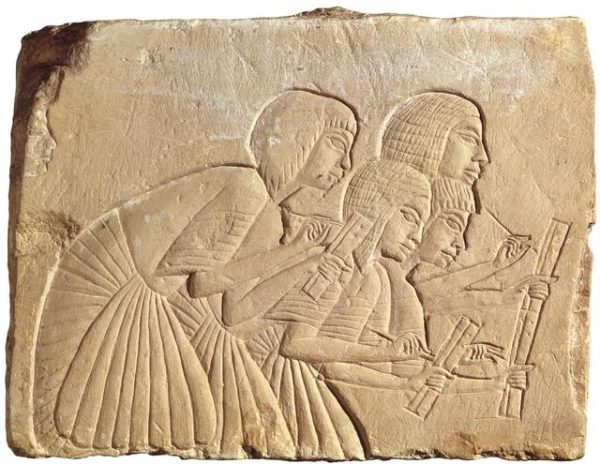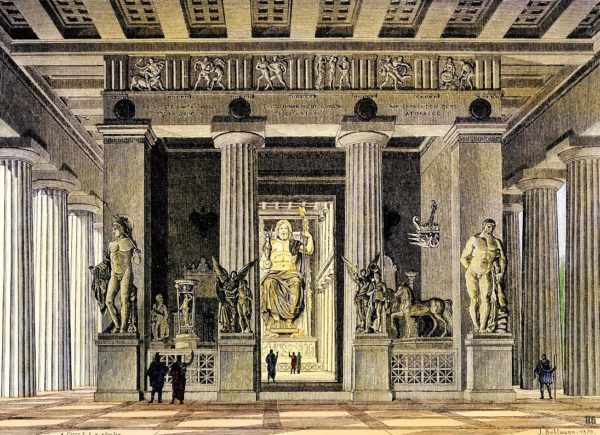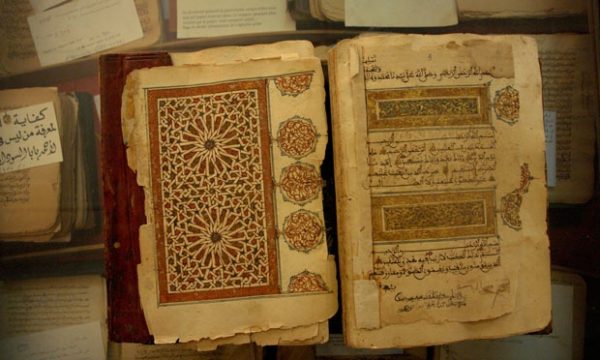
African knowledge was not only passed down orally.
The notion that ancient African education was oral and not written is only a myth. In his book, “Reversing Sail: A History of the African Diaspora,” Dr. Michael Gomez, an author andprofessor of history and Middle Eastern and Islamic studies at New York University, declares that, from 300 B.C. to A.D. 350, the Meroë civilization had developed a writing system of its own.
Africans were literate far before Europeans.
Gomez states that while the Western perspective dates intellect and education back to the era of Socrates and Plato, the individuals of Egypt and Nubia developed “literate, urban-based, technologically advanced civilizations” centuries before the mere establishment of Rome, let alone Athens. In fact, in his book “Echoes of Ancient African Values,” Dr. Joseph Bailey, a retired orthopedic surgeon who has become an expert in the subjects of Ancient African history and African-American experiences, states that “modifications of Egyptian writing served as the basis for the ‘new’ writings developed for many Western Semitic languages — Phoenician, Hebrew, Aramaic, etc.”
Africa was home to one of the oldest universities in the world.
Founded in A.D. 989 by the erudite chief judge of Timbuktu, Al-Qadi Aqib ibn Mahmud ibn Umar, the The Sankore Mosque, or Sankore University, is one of the oldest schools of higher learning in the world. A wealthy Mandika woman financed Sankore, making it a leading center of education, according to Muslimheritage.com. K.C. MacDonald, a lecturer of African Archaeology at the University College of London’s Institute of Archaeology, writes that the school “had no central administration, student registers, or prescribed courses of study; rather, it was composed of several entirely independent schools or colleges, each run by a single master or imam.” This university reportedly produced over 700,000 manuscripts.
Individuals traveled from all over to be taught by Africans.
According to Gomez, in the 1100s, the Africans of al-Andalus, a medieval Muslim state, significantly contributed to the “intense period of intellectual and cultural production” that lasted for 800 years. The African intellect of Iberia served as the foundation for the European Renaissance that began in the 1500s and lasted until the 1800s. Also, individuals traveled from all around the globe to study at the universities at Timbuktu in both the Mali and Songhai empires. In fact, revered European scholars, such as Herodotus, journeyed to Africa to obtain knowledge and information.
It takes a village to raise a child. In regards to African education prior to the arrival of Europeans, every generation was involved. In his book, “History and Development of Education in Tanzania,” Professor Philemon A.K. Mushi, the first and founding principal of the Mkwawa University College of Education, confirms that indigenous education in Africa was characterized by the “process of passing among the tribal members and from one generation to another the inherited knowledge, skills, cultural traditions, norms and values of the tribe.”
African education was never-ending.
Indigenous African education was a process that lasted a lifetime. In his article, “History of Education in East Africa,” Sam Witerson, a teacher of Dar es Salaam, Tanzania, expresses that “African indigenous education was a lifelong process of learning whereby a person progressed through predetermined stages of life of graduation from cradle to grave.” Education was a journey, as opposed to a stepping stone toward monetary-inspired success.
Ancient Kemet developed a highly complex and impressive system of schooling.
The late George Granville Monah James was an author and historian of South America. In his book, “Stolen Legacy,” he expounds upon the educational Egyptian Mystery System of Ancient Egypt. At the universities of Egypt, grammar, rhetoric and logic eliminated irrationality. Geometry and arithmetic harbored the theories and techniques in which individuals eliminated problems, both internally and physically. And, astronomy gave individuals the ability to obtain knowledge and examine destiny. Lastly, music served as the “living practice of philosophy.”
The Egyptian Mystery Schools inspired Greek philosophy.
In “Stolen Legacy,” James uncovers the five primary elements that link Greek philosophy to the aspects of the Egyptian Mystery Schools. First, many Greek philosophers found studying the sciences to be pivotal; this action was a requirement for membership into the Egyptian Mystery System. Second, the four cardinal virtues of Plato heavily resemble the 10 virtues of the Egyptian Mystery System. Third, the religious institutions of Greece bear a striking resemblance to the temples of Egypt; just as the religious palaces and temple of Egypt, the religious institutions of the West are often constructed of stone and characterized by entrances lined by statues, large courts and ceilings that favor the sky with paintings of clouds or stars. Fourth, the temple of Delphi, which is often mentioned throughout the legends of Greek mythology, was solely of Egypt. And, fifth, while the later rulers of Greece opposed Egyptian influences, many philosophers of ancient Greece imitated Egyptian worship.
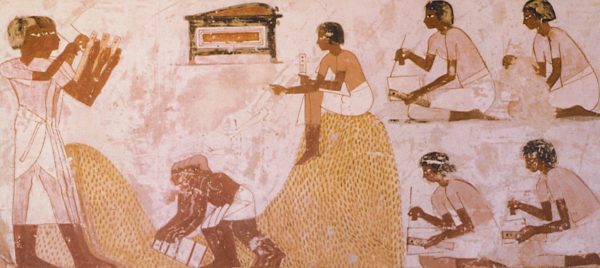
In Ancient Egypt, the scribe was the epitome of intellect.
In ancient Egypt, education was reserved for the royals, the rich and the “gatekeepers” of society; the scribes were these gatekeepers. In his book, “Eloquence of the Scribes: a Memoir on the Sources and Resources of African Literature,” Ayi Kwei Armah, a Ghanaian scholar, author and translator, explains that these individuals had an “unmistakable stamp of genius,” as well as “such high organizational skills that their civilization lasted thousands of years, longer than any other.” While most scribes were of the elite class, scribes could be a member of any social class, and, while most scribes were men, evidence has shown that female scribes existed. Scribes were responsible for multiple tasks, which included preserving history, collecting taxes and composing written recollections of everyday life in Egypt. Prior to becoming a scribe, one had to undergo intense training characterized by apprenticeship.
African education was rooted in collectivism, as opposed to individualism.
“(E)ducation or (e)ducation in Traditional African Societies? A Philosophical Insight,” a paper written by Amasa Philip Ndofirepi and Elizabeth Spiwe Ndofirepi, conveys that, in regards to education, communalism is “the responsibility of the community to see to it that children are raised appropriately and that as they grow into adulthood they will provide for the older members of the community.” the major goal of traditional education in Africa is to produce a complete individual; one who is cultured, respectful, integrated, sensitive and responsive to the needs of the family and neighbors.
Source: ATLANTA BLACK STAR





